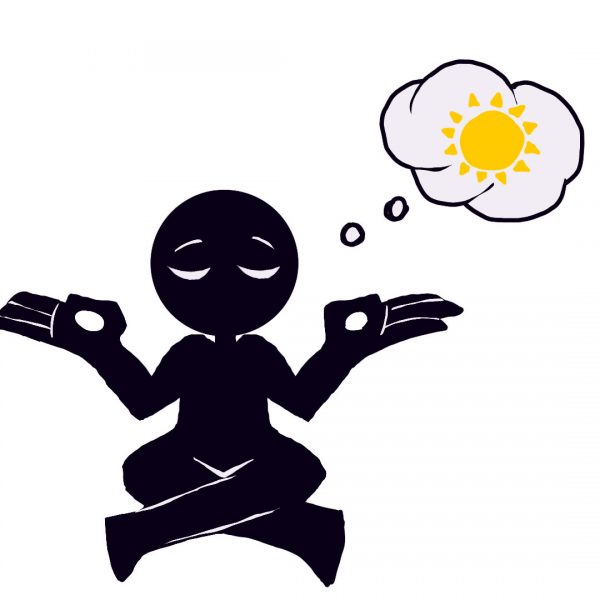
Illustrated by Kaitlyn Carr | Washtenaw Voice
By Samadhi Tedrow
Contributor
As we are well into the winter season, we can’t help but realize that some of us are a bit down in the dumps. Even others may notice a difference in our behavior during this dreary winter season, and there is a scientific reason for that.
Enter SAD, otherwise known as Seasonal Affective Disorder. SAD is a mental health problem that finds its roots in a serotonin deficiency (a lack of sunlight), which conjures up feelings of depression, hopelessness and anxiety.
Even without SAD, the concept of “winter blues” has been an unspoken but well-known factor in our mental health, especially up north, where the weather can get increasingly snowy and cloudy for long periods of time.
Elizabeth Orbits, a licensed personal counselor here at WCC, said that a majority of depression and anxiety cases around this time are caused by “financial problems and unstable, dysfunctional families.”
But don’t fret. As with any seemingly hopeless situation, feeling or disposition, there are solutions available.
Tips to help combat winter blues
Buying “Happy Lights,’’ is a suggestion by Kristy Norris, a professor at WCC who works in the Behavioral Science Department. According to Norris, these lights can be purchased at any major retailer and they “expose you to a concentrated UV light” that performs as a serotonin trigger.
Indoor and outdoor exercise is also a great way to relieve pent up stress and mood swings caused by this unstable weather, which is a tip supported by Orbits and Norris respectively.
Proactivity in the local community as well as surrounding yourself with people you care for are both highly recommended. Orbits suggested confiding in trusted loved ones such as friends, family or significant others, and simply spending time with them and explaining what’s on your mind.
“Encourage your own personal traditions, and even form some new ones,” says Orbits. Picking up a hobby can help replenish your feelings of happiness and well-being.
Vitamin D deficiency may have a correlation to worsened symptoms of SAD; natural vitamin D supplements may help ease some of the effects of SAD, but you should always check with your doctor before you take any new vitamins or supplements.
Counseling services are available to WCC students for free. Professional, licensed counselors are on campus, ready to provide services to students struggling with anxiety, depression, grief, low self-esteem, or other mental health challenges.
Mental health resources:
The National Suicide Prevention Lifeline
800-273-TALK (8255)
Washtenaw County Community Mental Health 24-hour hotline
734-544-3050
UM Health System Psychiatric Emergency Services hotline
734-936-5900
Crisis Text Line
Texts can also be sent at 741741
The WCC Counseling Office
Open Monday through Thursday, 8 a.m.-7 p.m., Friday, 8 a.m.-5 p.m.,
and Saturday, 9 a.m.-1 p.m. (at Student Connection).
Appointments can be made by calling 734-677-5102.
Campus assistance program
Visit www.caplife.hmsanet.com and login with the inforwmation below:
Username: WCC
Password: myresource
Or call 1-866-227-3834 anytime


